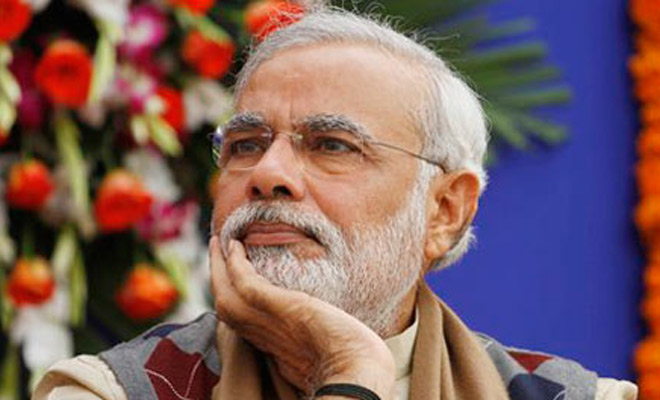Anti-Muslim Stance of Israel Chimes with BJP and RSS
PM Modi

NEW DELHI: Narendra Modi has distinguished himself in one respect during his initial run as prime minister. He has proved to be an activist in foreign policy and has travelled far and wide in spreading the word that he has arrived.
Wisely, he emphasised relations with neighbours as a priority and got Pakistan’s Nawaz Sharif, among others, to his swearing-in ceremony. He also got China’s President Xi Jinping to visit India last year and paid a return visit to China. Japan’s Shinzo Abe, whom he considers a natural ally, he met on his home turf early. And with the United States, he sought to develop a special relationship with President Barack Obama visiting Washington for the first time after he was barred on account of 2002 Gujarat pogrom and succeeded in getting him to the Republic Day parade here.
Perhaps Modi underrated the complexity of the Indo-Pakistan relationship and blew hot and cold. He called off official talks with Pakistanis at the last minute because they were meeting with a Hurriyat delegation before the official talks, an old practice. The long hiatus was broken in the Russian setting when the two prime ministers unveiled an optimistic scenario soon to be followed by acrimony.
An achievement of Modi’s Government was in completing the border agreement with Bangladesh pending for long for Parliament’s approval, thanks in part to the Bharatiya Janata Party, then in opposition. As for other neighbours, New Delhi made conciliatory gestures to Sri Lanka and was generous with giving relief to Nepal suffering a major earthquake.
Modi’s priority is to build strong relations with the United States, still the world’s strongest power, keep up a dialogue with China with its growing clout and tap it and Japan for investment and technology transfer from the latter.
In geopolitical terms, Modi’s is a reasonable set of priorities, but he will be entering dangerous waters as he plans to visit Israel early next year, the first visit by an Indian prime minister. India’s policy thus far has been to tap Israel’s highly competitive defence industry and expertise in agriculture while keeping the political relationship at a relatively low level.
This approach has flowed from the recognition that the Arab world is important for India as the major oil supplier and a provider of employment for millions of Indians. The world changes and relationships do not remain static. The danger for the Modi Government is two-fold. The BJP has a symbiotic relationship with Israelis because of the latter’s tooth-for-tooth approach to adversaries, in particular the large Palestinian population it colonises. Second, the anti-Muslim stance of Israel chimes with the thinking of the BJP and its mentor, the Rashtriya Swayamsevak Sangh.
Modi plans to visit the Palestinian Territory as well but that would amount to little, except for its symbolism. The direction of the new Government’s policy is clear from the Indian abstention in a vote in the UN Human Rights Council on a resolution seeking both Israelis and Palestinians to probe war crimes committed during the 2014 Gaza War. Most of Europe voted for the resolution.
Ironically, India’s projected love affair with Israel comes at a time much of Europe and even some entities in the United States, universities in particular, are disinvesting in the occupied West Bank territories. And Prime Minister Benjamin Netanyahu presides over the most right-wing government in the country’s history.
S Nihal Singh is a veteran journalist and foreign policy expert



